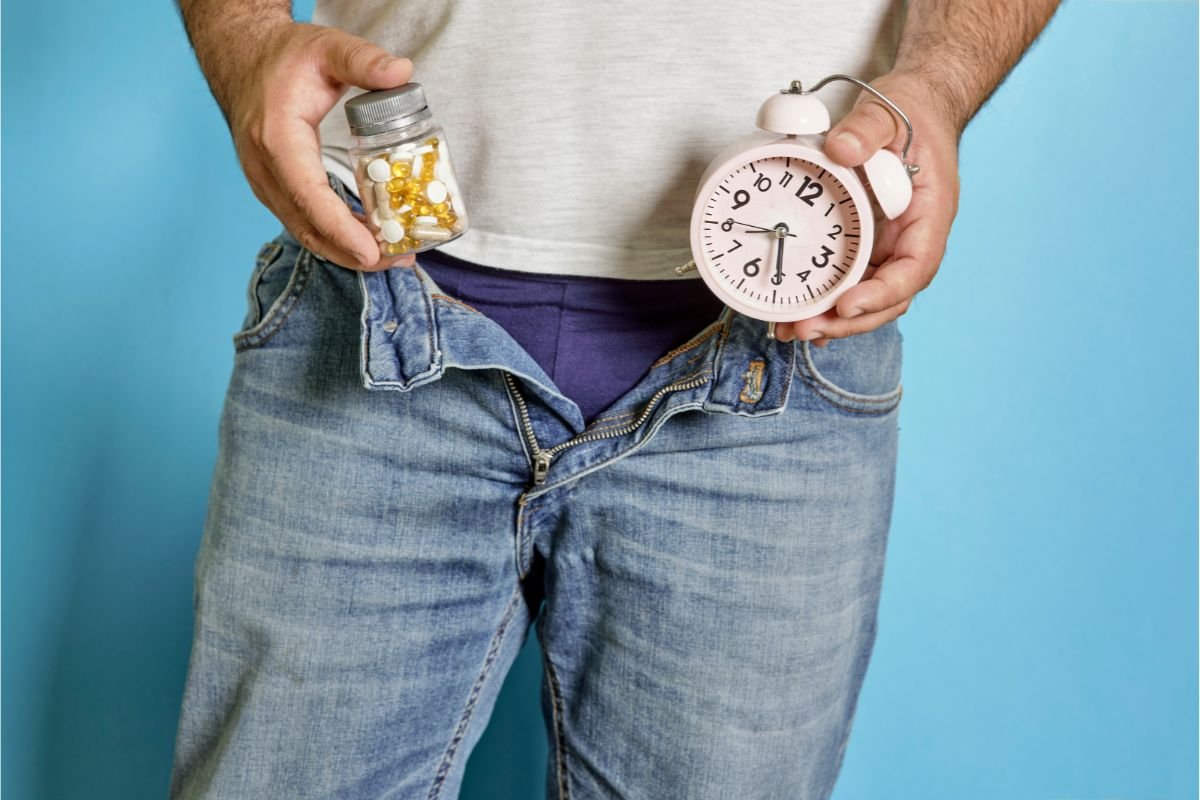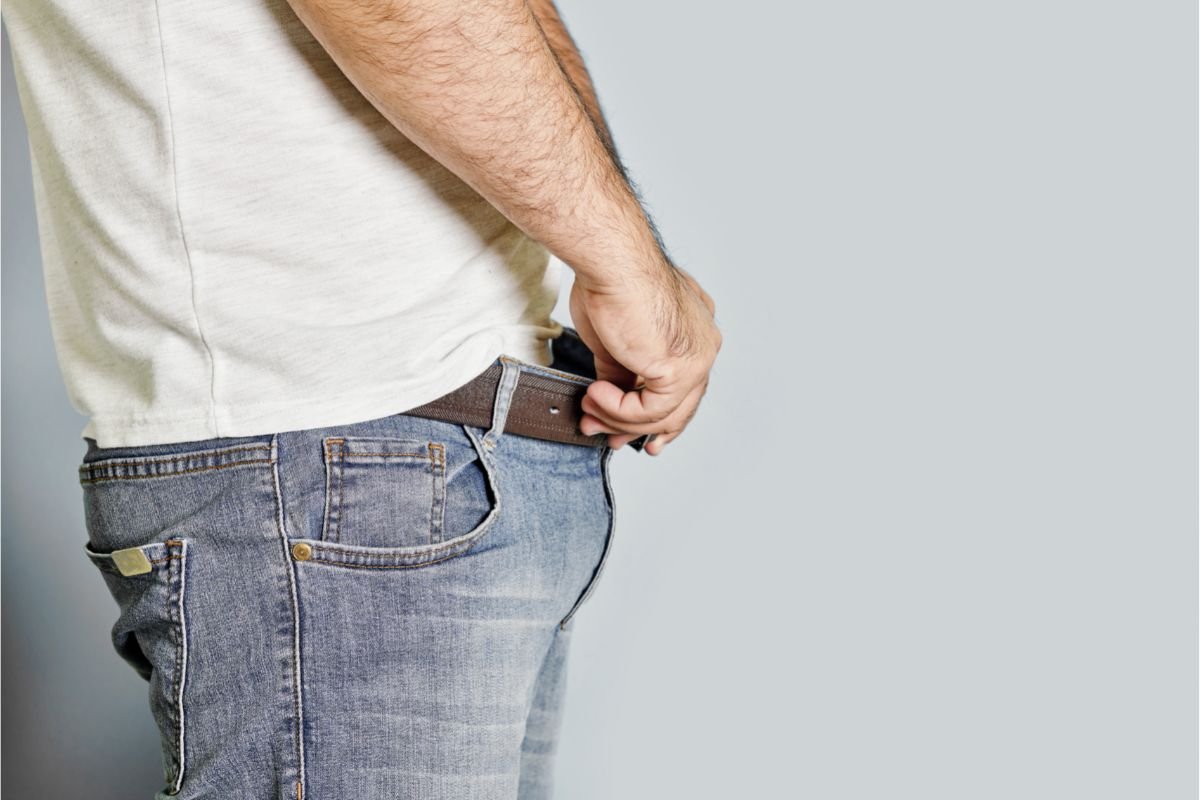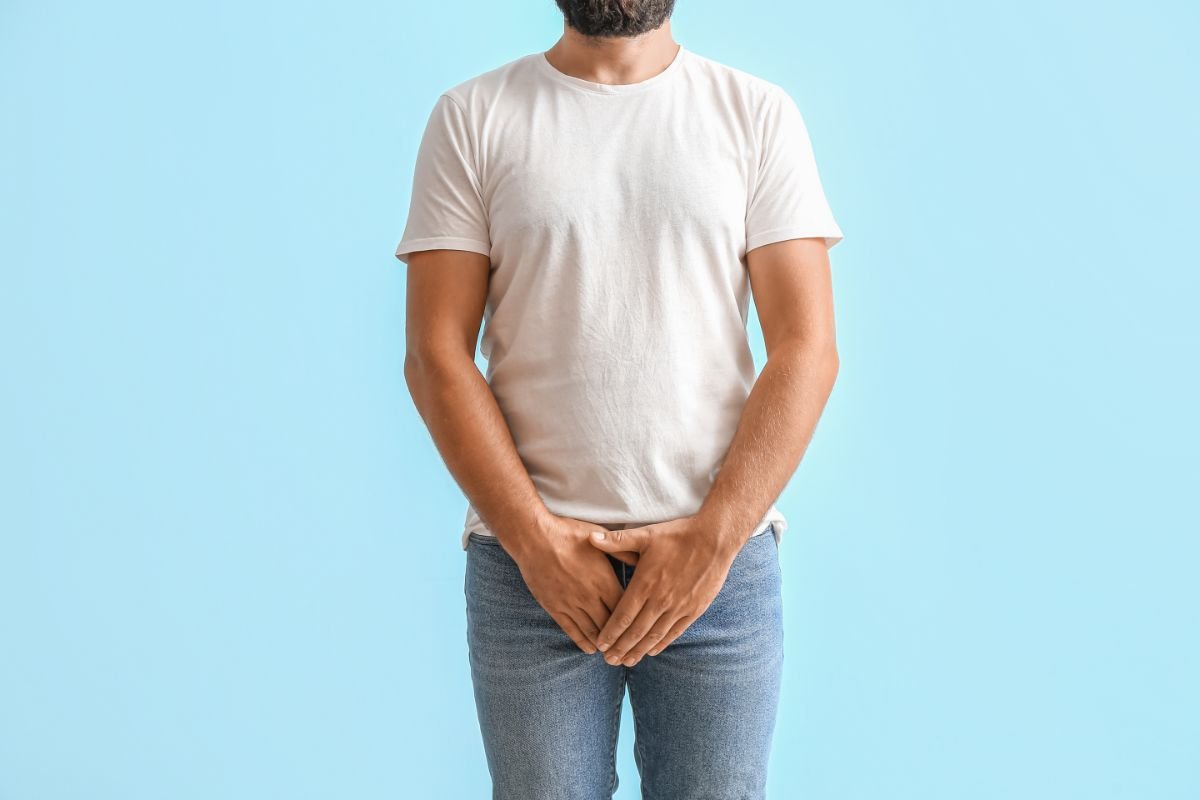Steroids are commonly used to enhance physical performance and body image and are all-too-common in many team and individual sports, and those looking to boost their physique and improve their results.
Despite offering some benefits to performance, however, there can be serious short- and long-term health consequences – including a higher risk of erectile dysfunction (ED).

We took a closer look at the effects of steroids on erectile dysfunction, how long you should expect to wait before seeing improvements, and the things you can do to help the process.
What Is Erectile Dysfunction?
Erectile dysfunction (ED) is a condition in which a man is unable to get or maintain an erection sufficient for sexual intercourse. It can be caused by physical or psychological factors, such as stress, anxiety, depression, and low self-esteem.
ED can also be caused by certain medications and medical conditions.
What Are Steroids?
Steroids are synthetic hormones that mimic the effects of testosterone, which is a male sex hormone.
They are commonly used by athletes and bodybuilders to increase muscle mass and strength, but they can also have serious side effects such as erectile dysfunction.
Some other common side effects of steroids include:
- Acne: Acne can be a key side effect of taking steroids, and this is caused by the increased production of sebum in the skin.
- Increased Risk Of Heart Disease: Steroid use can increase your risk of developing heart disease, as it can cause changes to your cholesterol levels and blood pressure.
- Liver Damage: Long-term steroid use can lead to liver damage, as the hormones can be toxic to the organ.
- Mood Swings: Steroid use can cause mood swings, as the hormones can affect your brain chemistry.
- Erectile Dysfunction: Erectile dysfunction is a common side effect of steroid use, and this can last for several months after you stop taking the drugs.
How Long Does Erectile Dysfunction Last After Steroids?
The effects of steroids on erectile dysfunction can vary from person to person, but it is generally accepted that ED can be a side effect of steroid use, and this is a fairly common symptom experienced by many men taking a range of steroids (Find out How To Avoid Erectile Dysfunction On Steroids).
The effects may last for as long as the user continues to take the steroids, and in some cases even after they have stopped taking them.
It is important to note that in most cases, the effects of steroids on erectile dysfunction are not permanent and can be reversed with the right treatment and lifestyle changes.
Long-term steroid abuse can, however, lead to more serious and permanent damage to the body, including long-term erectile dysfunction that can have a detrimental impact on your long-term sex life and enjoyment.
Why Do Steroids Cause Erectile Dysfunction?
Steroids can cause erectile dysfunction due to the way they affect hormone levels in the body. Anabolic steroids, for example, are synthetic versions of testosterone, which is a male sex hormone.
When taken in large doses, these steroids can interfere with the normal production of testosterone and other hormones in the body, leading to a decrease in libido and sexual performance.
Additionally, steroids can also increase levels of the stress hormone cortisol, which can lead to anxiety and depression – both of which can contribute to ED.

Reducing erectile dysfunction caused by steroids will depend largely on the testosterone and other hormone levels in your body returning to normal – and this can take anything from three months to one year depending on how frequently you were taking steroids, and how long you have been taking them for.
Until these hormone levels settle back down, you are likely to experience ED symptoms.
What Can I Do To Help Reverse Erectile Dysfunction Caused By Steroids?
If you are experiencing erectile dysfunction due to steroid use, there are a few things you can do to help reverse the effects, and these include:
Stop Taking Steroids Immediately
The first step is to stop taking steroids immediately. This will help to reduce the levels of hormones in your body and allow them to return to normal.
Reduce Stress Levels
Stress can be a major contributing factor to ED, so it is important to try and reduce stress levels as much as possible.
This can be done by engaging in relaxation techniques such as yoga or meditation, getting regular exercise, and avoiding stressful situations.
Eat A Healthy Diet
Eating a healthy diet can help to improve your overall health, and this includes improving your sexual health.
Eating foods that are rich in vitamins and minerals such as fruits and vegetables can help to improve blood flow to the penis, which can help with ED symptoms.
Get Regular Exercise
Regular exercise is important for maintaining good physical and mental health, and it can also help to improve blood flow to the penis. This can help with ED symptoms, so it is important to get regular exercise.
Get A Medical Health Check
If you are still experiencing ED symptoms after making lifestyle changes, it is important to get a medical health check.
This will help to identify any underlying health conditions that may be contributing to your ED, and allow your doctor to provide the best treatment for you.
Reduce Alcohol Consumption
Alcohol can have a negative effect on sexual performance, so it is important to reduce your alcohol consumption if you are experiencing ED – ideally, you should cut out alcohol altogether to allow your body to heal.
Final Thoughts
It is important to remember that the effects of steroids on erectile dysfunction can vary from person to person, and it is not always possible to predict how long it will take for ED symptoms to resolve.
However, by making lifestyle changes such as reducing stress levels, eating a healthy diet, and getting regular exercise, you can help to reduce the severity of your ED symptoms.
If you are still experiencing ED after making these changes, it is important to get a medical health check to identify any underlying health conditions that may be contributing to your ED.
- Yeast Infection Vs Herpes - January 26, 2023
- How Long To Wait For Sex After Yeast Infection Treatment - January 26, 2023
- Yeast Infection Vs STD - January 26, 2023










